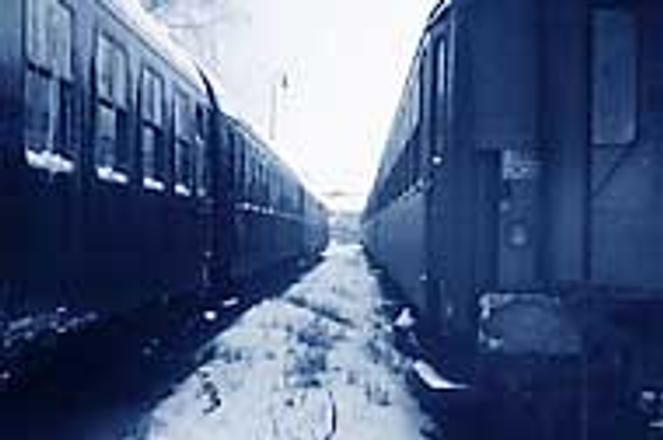LOCAL governments may run trains.photo: File photo
SLOVAKIA'S state railway company, ZSSK, will cancel 25 local passenger lines and reduce passenger service on other lines from the beginning of February in an effort to reduce costs and control runaway debts.
According to the Transport Ministry, the cuts will bring savings of Sk468 million (11.2 million euro), as the railroad struggles to meet reduced budget targets for 2003. Unions and local officials, however, complain that the move will cost thousands of jobs and will result in hardship for those living in areas where service is set to be cancelled.
"For every crown of revenues [on the 25 lines to be eliminated], there are expenses from Sk2 to Sk25.80," said Transport Minister Pavol Prokopovič, adding that ZSSK had been allocated Sk4.3 billion (103 million euro) from the state budget for 2003, well below the Sk5.7 billion (136 million euro) the railroad had requested. In 2000, Sk6.7 billion (160 million euro) from the state budget was allocated for Slovakia's railways.
While the rail operator will begin bus service on three of the cancelled lines, some areas will be left without public transportation, angering local leaders.
"I'm still annoyed by the cabinet's decision, and I don't know what to tell people who are crying in my office," said Boris Šimkovič, mayor of the western Slovak village of Záhorská Ves.
According to Šimkovič, the Záhorie region in far-west Slovakia faces a crisis with the cancellation of service, as rail has long been the region's dominant form of public transportation.
"There is one local train here that around 400 people from Záhorská Ves take to work, and students to school. Some of these people will lose their jobs," said Šimkovič, adding that he had spoken to regional bus operator SAD Bratislava, but the company had no plans to introduce new bus service along the cancelled line.
"Transport to work or school is an essential public service and it should be guaranteed by the state," said Šimkovič.
The Transport Ministry has presented a plan to revive the 25 lines cut from the state railway company under different ownership, a plan backed by ZSSK.
"There should be a legislative framework, which I will have prepared by April 30. This will create the possibility of securing transportation under local governments, regional administrations, or business subjects," said Prokopovič.
"Price regulation would be dismantled and operators would be able to set prices themselves," he said.
Officials from ZSSK say that the participation of the regions is the only way to save passenger operations on the targeted lines.
"The basic requirement for successful negotiations is the willingness of the regional authorities to [take responsibility for those loss-making] local passenger railway lines," said ZSSK spokesperson Miloš Čikovský.
The plan, however, has met with strong resistance from local government officials, who say they have neither the resources nor the knowledge to run train companies.
"We don't have money to finance alternative transportation and we are very surprised at the directive cancelling rail transportation. I don't know how the region will deal with the new situation," said director of the Trenčín regional government office, Pavol Krištof.
"We are very unsatisfied with the reaction of the transport minister," echoed the head of the transportation department at Košice regional government office, Antonín Reisinger.
"The Transportation Ministry has to realise that responsibility for railroad operations belongs not to regional governments, but to the state," he said.
Railway employees and unions have also reacted angrily to the cancellations, saying that service reductions could cost up to 3,000 jobs.
"We are considering a strike," said Jozef Schmidt, head of the railway workers' union. "Unless we achieve some progress in the present situation, the strike committee will announce when we will walk out," he said.
While the ZSSK has declined to estimate the full extent of the layoffs, the company has said 443 positions related to the cancelled lines will be eliminated.
Officials from the ministry, however, downplay strike threats, saying that the service cuts were announced three months ago, and are a necessary process of transformation.
"We are negotiating with the unions and I don't think that railroad workers will strike. We need to accept that ignoring long-term problems and not [paying down] huge debts would in a very short time result in the collapse of the entire railroad network," said Prokopovič.


